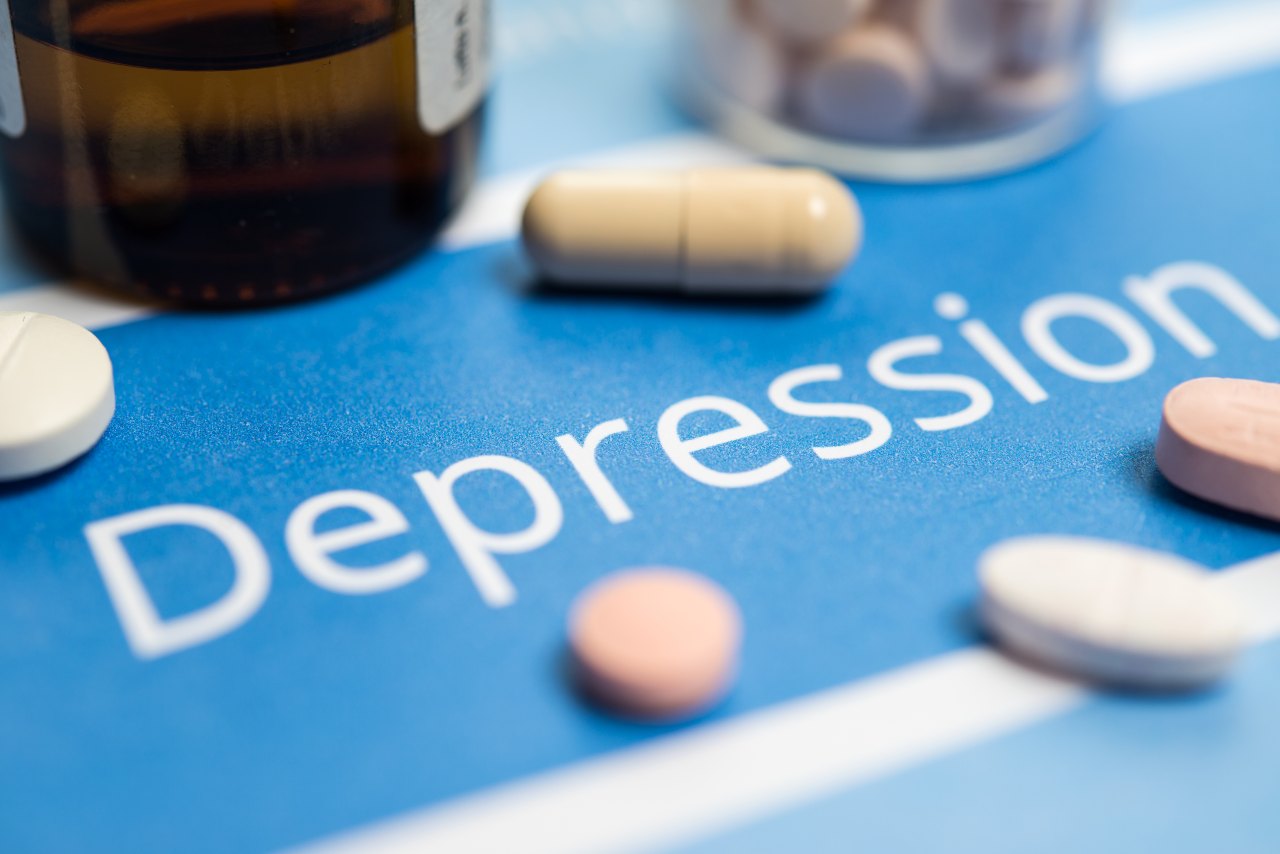TMS: A Non-Drug Revolution in Depression Therapy - What You Need to Know
Depression affects millions of people globally. Statistics from the World Health Organization (2023) estimate that around 280 million people worldwide experience depression. The rates are higher for women than men and those over 60 experience depression even more. The reality is that a depression diagnosis can arise for anyone of any age, and while many find relief through medication and therapy, others continue to struggle.
For those seeking alternatives to traditional treatments, Transcranial Magnetic Stimulation (TMS) has emerged as a promising, non-drug option. In this post, we’ll explore what TMS is, how it works, its benefits, and what to expect during a typical session. Goolsby and Associates is a leader in transcranial magnetic stimulation in the North Georgia region. We believe in the power of this FDA approved treatment modality for major depressive disorder. If you are seeking a credible treatment option for your MDD beyond medication an talk therapy, TMS might just be the solution you are searching for.
What is TMS?
Transcranial Magnetic Stimulation (TMS) is a non-invasive procedure that uses magnetic fields to stimulate nerve cells in the brain. It is primarily used to treat individuals with major depressive disorder (MDD) who haven’t found sufficient relief from medications or psychotherapy. TMS was FDA-approved for treating depression in 2008 and has since been recognized as a revolutionary therapy for those with treatment-resistant depression.
How Does TMS Work?
The science behind TMS revolves around the brain's electrical activity. Our brains communicate through electrical signals, and disruptions in these signals can contribute to mental health conditions like depression. TMS works by delivering magnetic pulses through a device placed on the scalp, targeting specific regions of the brain associated with mood regulation, particularly the prefrontal cortex.
The magnetic pulses used in TMS are similar to those used in MRI (Magnetic Resonance Imaging) machines. When these pulses reach the brain, they induce small electrical currents that can help "reset" the brain's activity in areas involved in depression. Over a series of sessions, this stimulation can enhance the functioning of neural pathways, potentially leading to an improvement in depressive symptoms.

The Benefits of TMS Therapy
TMS offers several benefits, particularly for those seeking alternatives to medication or those who have not found success with traditional treatments:
1. Non-Invasive and Drug-Free
Unlike medications, which can cause a wide range of side effects (such as weight gain, sexual dysfunction, and fatigue), TMS is a non-invasive procedure that does not involve the ingestion of any drugs. For many, this is a significant advantage, as TMS avoids the systemic side effects commonly associated with antidepressant medications.
2. Effective for Treatment-Resistant Depression
Many individuals with depression do not respond adequately to antidepressant medications or talk therapy alone. Studies have shown that TMS can be particularly effective for people with treatment-resistant depression. According to research, approximately 50-60% of patients with treatment-resistant depression experience a significant reduction in symptoms after undergoing TMS therapy, and about one-third achieve full remission.
3. Minimal Side Effects
The side effects of TMS are generally mild and may include scalp discomfort or mild headaches during the procedure. Unlike medications, TMS does not cause side effects like nausea, drowsiness, or cognitive impairment. Additionally, the procedure does not require anesthesia, so patients remain fully awake and alert during the session.
4. No Long-Term Commitment to Medication
For individuals who prefer not to take long-term medication for managing their depression, TMS presents an appealing alternative. The effects of TMS can last for several months to years after a full course of treatment. In some cases, maintenance sessions can be scheduled if symptoms begin to reappear, providing flexibility and a sense of control over long-term mental health management.
5. Personalized Treatment Approach
TMS therapy is highly customizable. The intensity of magnetic pulses, frequency, and targeted areas in the brain can be tailored to the individual’s specific needs. This personalization makes TMS an adaptable and focused treatment that caters to different patterns of depression.

What to Expect During a TMS Session
If you’re considering TMS, it's helpful to know what a typical session entails. Here’s what you can expect:
Initial Assessment
Before starting TMS therapy, you will undergo a thorough assessment with a psychiatrist or TMS specialist. This evaluation ensures that TMS is appropriate for your situation and helps tailor the treatment to your specific needs. We will take a detailed medical history an assess your symptoms. Here at Goolsby and Associates, we require an initial assessment to ensure that TMS is a viable solution for you. Once we can determine that you are candidate for this treatment option, we create a customized treatment plan just for you.
The Treatment Session
A typical TMS session lasts around 5 to 30 minutes depending upon your specific needs. You’ll sit in a comfortable chair while the technician positions the TMS device on your head. The device, which resembles a cushioned helmet, will deliver magnetic pulses to the targeted area of your brain. You will hear clicking sounds and may feel a tapping sensation on your scalp. Most patients describe this feeling as mildly uncomfortable but not painful.
After the Session
After the session, you can immediately return to your regular daily activities. There is no need for recovery time, unlike some other procedures that may require sedation or anesthesia. Some people experience mild headaches or scalp discomfort, but these side effects typically subside quickly.
Treatment Course
TMS therapy usually involves multiple sessions over several weeks. A common treatment course includes five sessions per week for 4-6 weeks. While some patients may start to notice improvements in their mood after just a few sessions, others may require several weeks to experience the full benefits of TMS.
Is TMS Right for You?
TMS therapy is a groundbreaking treatment option, but it may not be suitable for everyone. Ideal candidates are typically adults with moderate to severe depression who have not responded well to medication or psychotherapy. It is not recommended for individuals with certain medical conditions, such as a history of seizures, metal implants in the head, or other neurological conditions.
If you are exploring TMS as a treatment option, it’s essential to consult with a healthcare professional who can evaluate your specific situation and provide guidance on whether TMS is appropriate for you.
The Future of Depression Treatment
TMS represents a significant advance in mental health treatment, offering hope to individuals who have struggled with traditional therapies. As research in neuroscience continues, TMS may become even more refined and accessible, potentially helping a broader range of mental health conditions beyond depression.
Key Takeaways:
-
TMS is a non-drug, non-invasive therapy approved for treating depression.
-
It is particularly beneficial for individuals with treatment-resistant depression.
-
The procedure involves using magnetic pulses to stimulate specific areas of the brain.
-
TMS sessions are relatively quick, with minimal side effects and no downtime.
-
Consultation with a healthcare professional is essential to determine if TMS is right for you.

TMS may not be a cure-all, but it represents a beacon of hope for those seeking alternative depression treatments. With its growing success rate and continued research, TMS is paving the way for a new era in mental health therapy. If TMS sounds like something you wish to explore, please reach out to our offices. We are here to help you live your best life, and we believe that transcranial magnetic stimulation might just be the answer you are searching for.
